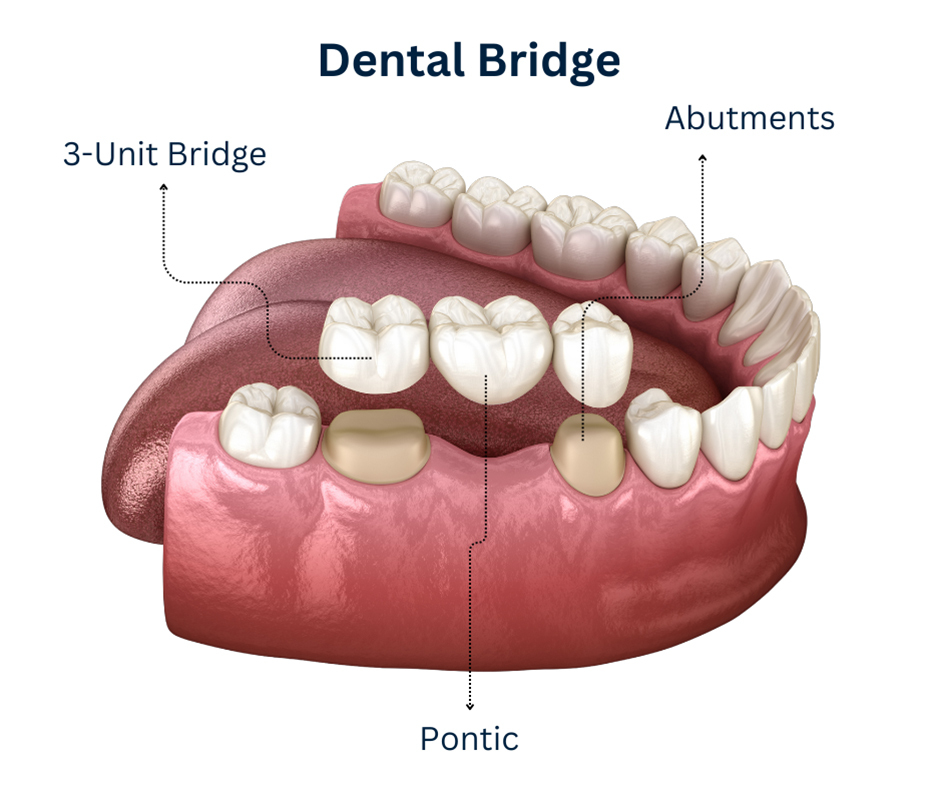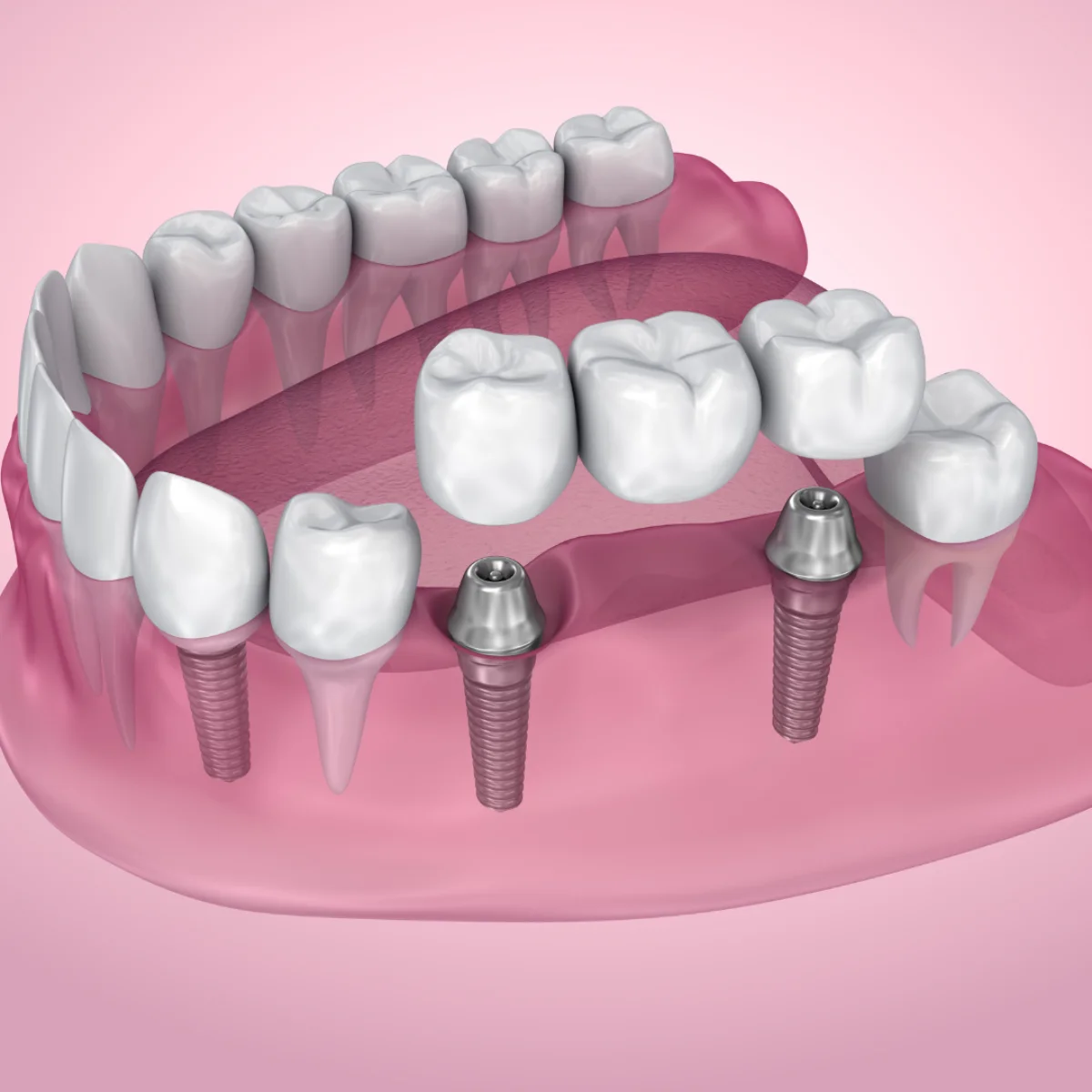Dental Bridges
On some occasions, a dentist will say it’s impossible to save a tooth, so they’ll have to extract it. Missing teeth often make people feel self-conscious and can impact their mouth’s functionality. After time, the remaining teeth can shift and twist into the gap, causing misalignment and gum disease.
What Are Dental Bridges?
Dental bridges are designed to literally bridge the gap where your teeth are missing and hold the remaining ones in place. They’re composed of two or more crowns that act as anchors (abutments) for the false teeth (pontics). Pontics can be made of materials like metal, alloys, gold, or porcelain. Each type will depend on the cosmetic finish you want to achieve.

Benefits Of Dental Bridges
Your dentist will likely recommend a dental bridge for the following reasons:
Varieties Of Dental Bridges
Your dentist may recommend three varieties of dental bridges, depending on where you’re missing teeth.
Traditional Bridges
A traditional bridge is the most recommended treatment for missing teeth. It’s made of crowns placed on either side of the gap, which act as anchors for the pontic. Traditional bridges are usually made from porcelain fused to ceramic or metal.


Resin-Bonded Bridges
Sometimes referred to as a Maryland bonded bridge, resin-bonded bridges are made with porcelain fused to metal, complete porcelain, or plastic teeth and gums supported by a porcelain or metal framework. The wings on each side of the bridge are securely bonded to your natural teeth.
Cantilever Bridges
Cantilever bridges are probably the least common variety. Dentists use them when there are only anchoring teeth on one side of the gap. In the past, cantilever bridges have caused problems after being placed in the back of the mouth. They exerted too much pressure on the anchor tooth, causing damage and breakages.
What Happens During the Dental Bridge Procedure?
A dental bridge will require at least two visits to your dentist.
During the first visit, your dentist will perform a thorough examination of your teeth. After receiving a local anesthetic, he will prepare the abutments by filing away some of the enamel so the crown can completely cover it. Then, he’ll take impressions of your teeth to use as a guide for the dental lab creating your bridge. Finally, you’ll receive a temporary bridge to protect the abutment teeth and gap while waiting for the permanent one to arrive.
When your final bridge is ready, you’ll come back to our office so the dentist can remove the temporary one. To ensure your new bridge fits perfectly, you may need to have several more visits or a “trial run.” Your dentist will temporarily implant the bridge to make sure it’s comfortable before permanently securing it.
Looking After Your Dental Bridge
Your dental bridge could last for about 20 years if you take good care of it. You should continue with a thorough oral hygiene routine and avoid chewy foods that will put additional strain on your bridge. Contact Vero Dental Spa if you have any other questions about dental bridges!

Get Your Complimentary
Consultation or 2nd Opinion
- Exam
- Full mouth X-ray
- Private Consultation with Doctor ($350 value)
- 3036 20th St,
Vero Beach, FL 32960 - (772) 778-5550
Working hours
- Monday: 8am - 5pm
- Tuesday: 8am - 5pm
- Wednesday: 8am - 5pm
- Thursday: 8am - 5pm
- Friday: 8am - 1pm
- Saturday & Sunday: Closed


